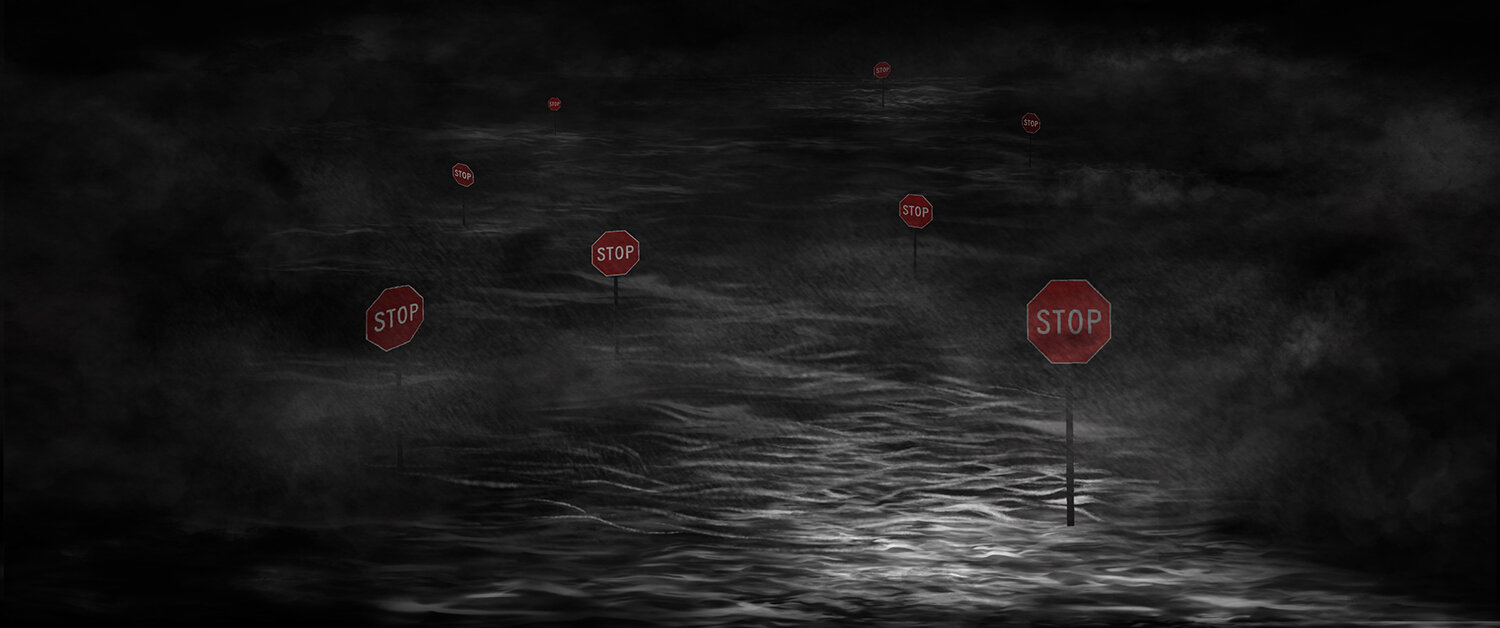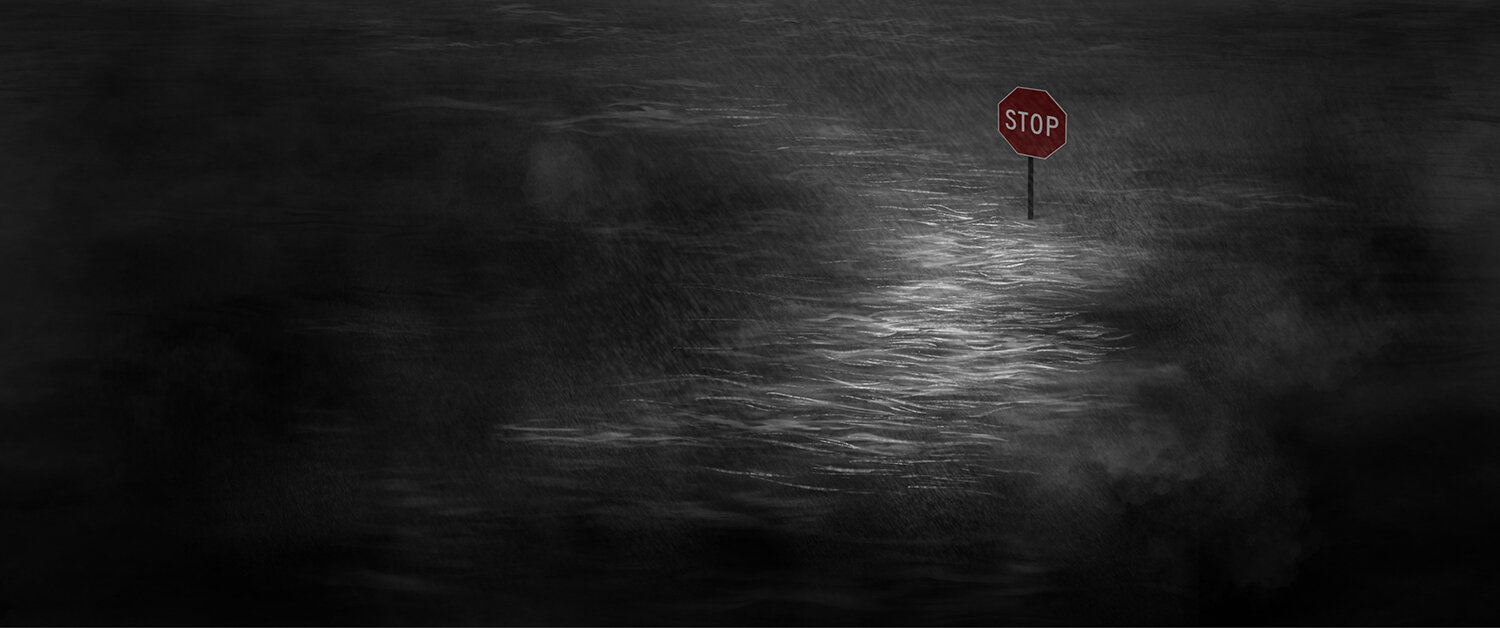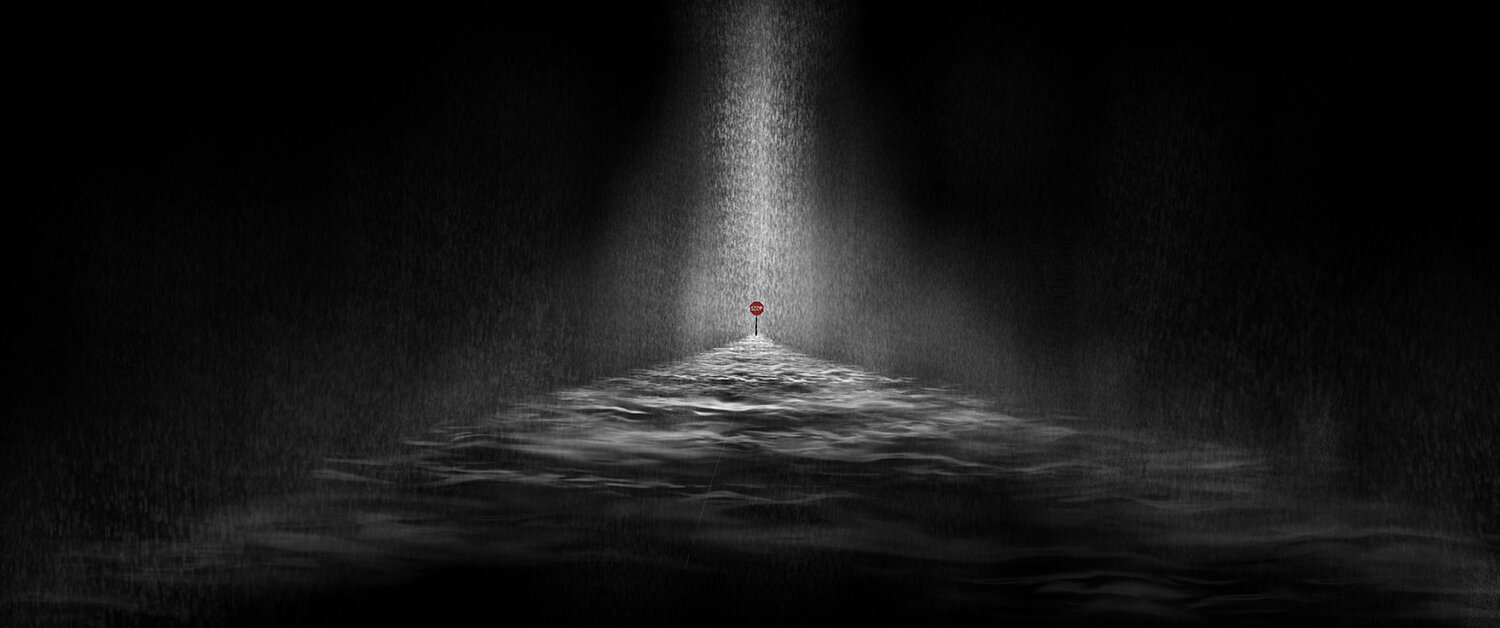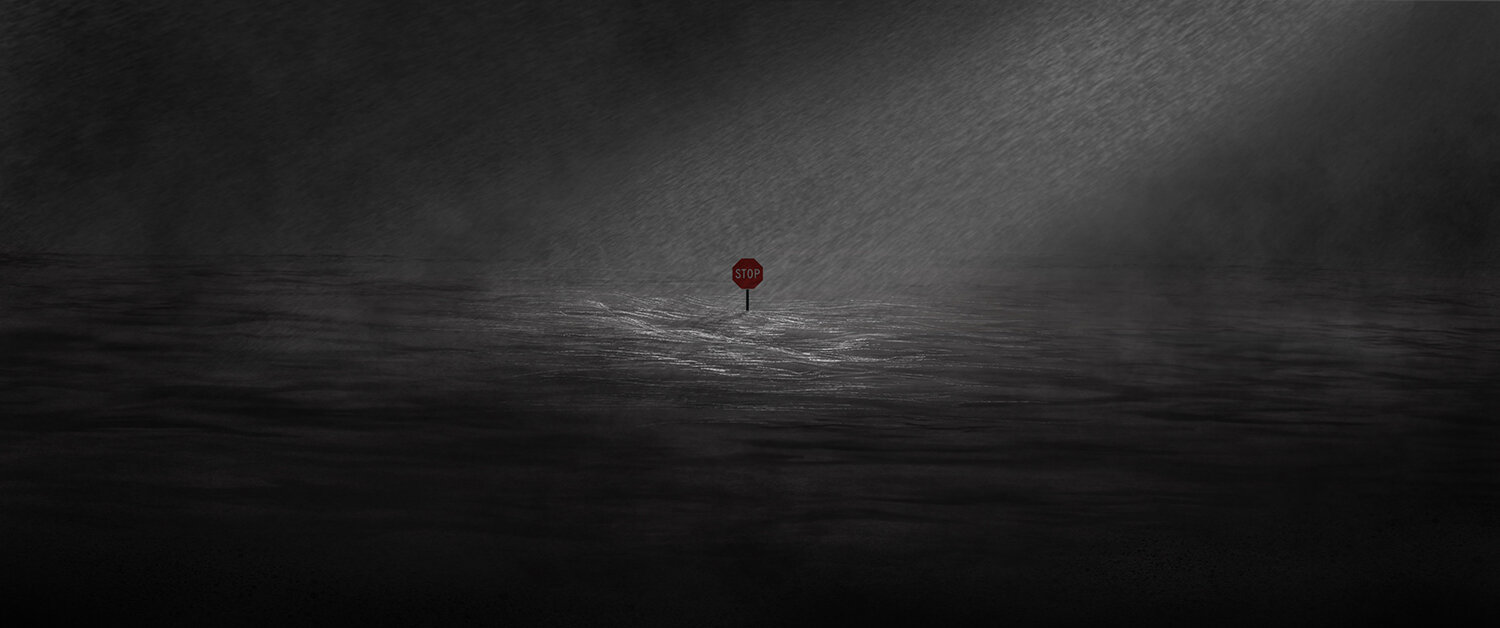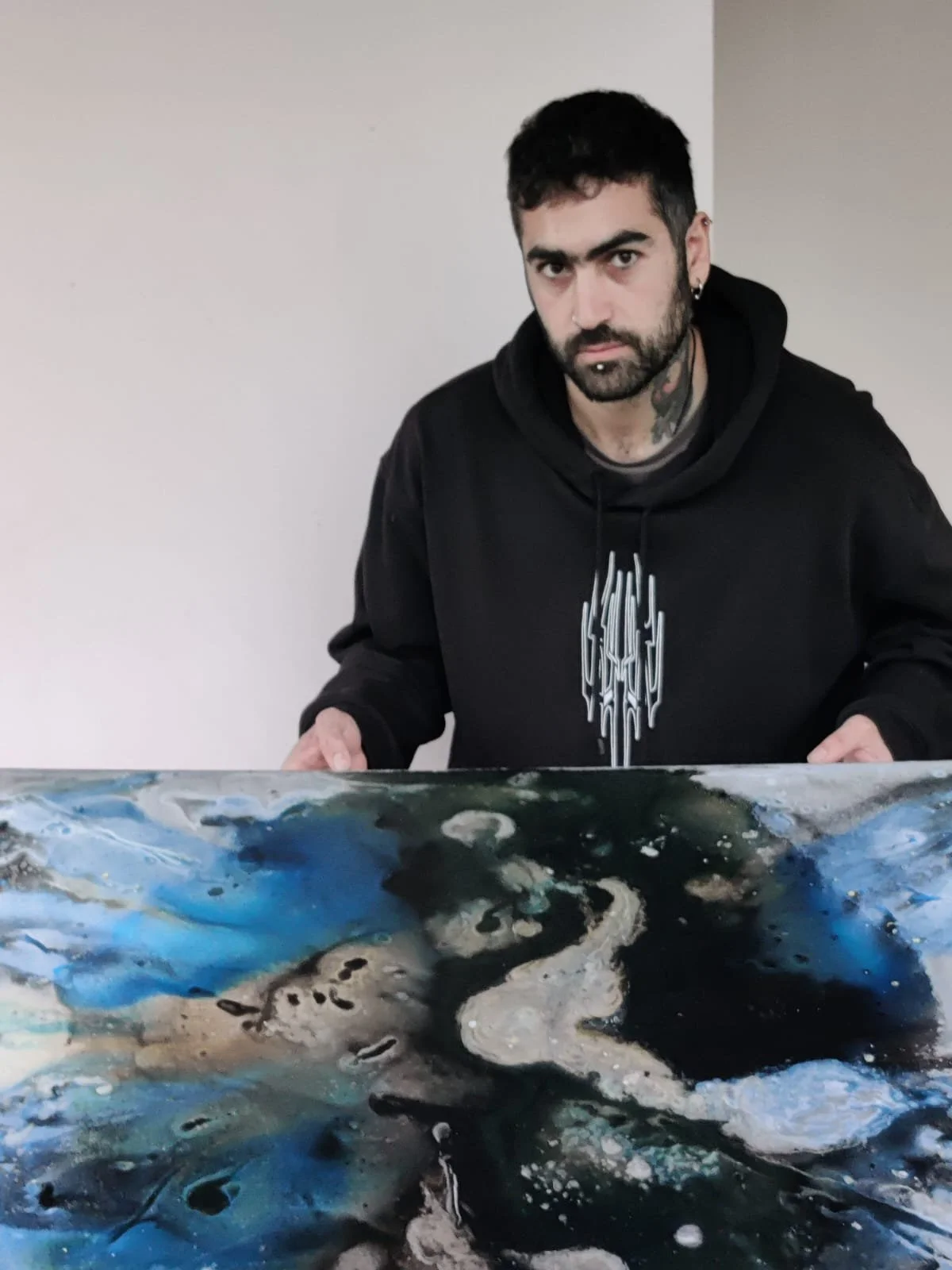8 Questions with Webson Ji
Webson Ji was born in China in 1995, based in New York City. The exploration of the essence of materiality is the driving force throughout Ji's artistic career. His background as a competitive swimmer during his youth contributes to his perspective on water's nature and movement. As such, Ji's practice focuses on presenting this substance, combining it with various industrial materials to present the viewer with a unique interpretation of his meditation.
“Water is a vision for me.”
Initially, Webson Ji was working on the still state of the water, the rain's capture, the moment water flows. Webson Ji focused on the meditative perspective of seeing such a malleable material. He tried to catch the moment.
Webson Ji spent seven years training as a competitive swimmer during his youth. He enjoys the quietness he feels underwater, the endless calm as if nothing is there. It is Webson Ji’s moment of meditation, and he goes with the flow. As the oxygen is running out, Ji will count down the remaining joy he has left, just like counting down his time of being alive and greeting the end of such a pleasant journey. One thing Webson Ji learned from his meditation, is to open up his mind and embrace water with respect.
That was how Webson Ji started to understand the acknowledgment of existence.
Mirage - Hope and Fake Hope, The Blanc Gallery New York, Webson Ji©
Mirage - Hope and Fake Hope, The Blanc Gallery New York, Webson Ji©
INTERVIEW
In your youth, when did you realize that you were going to become an artist?
Becoming an artist is more like choosing a way of living for me. I was born in a traditional Asian family. My parents won't set much of the limitations for what I could do or what I couldn't. However, they supported my education, and I was lucky to know friends who share similar life paths. During my youth, I had professional instructions in swimming, violin, art, calligraphy, and such an experience provided me different perspectives of seeing my life. I feel lucky to have these opportunities, and I am grateful for the people who share love and support with me.
Among all the training I got, I constantly experienced what was valued in different fields of expertise. Compared to mastering a certain technique, I would personally prefer an ability to take control of my imagination. After the academic practice I took back in college, I felt confident in what I was doing, and I wish I could continue expressing how I feel and what I value in my artworks.
Black Water is more like a self-portrait of all the emotions that you are going through. Can you tell our readers what experience of your life is reflected in your works of art?
I started Project Black Water in late 2018. It was my second year living in the United States, and I was, at that time, trying to embrace the American culture to communicate with diverse creatives all around the world. However, what I experienced in my life forced me to face who I am and what role I play in such a society.
As a Chinese living in the United States, I gradually learned a word, racism. Sometimes I walk into a store or a restaurant with employees ignoring me and greeting other customers; sometimes strangers stopped me, yelling at me to leave their country; sometimes, I get assaulted and threatened in the streets. Back then, I was still putting the language I learned into usage, so I didn't follow the verbal attacks or insults. As I learned more about what's going on in the US, I started to question myself, as a foreigner, why would I want to get here at the first place, and what do I want to achieve in my future career?
Studies on stop signs #4, Webson Ji©
Life is not always this way. Most of the people I met are friendly and kind, so I am confused about why people are taking two extreme opposite ways. The more I engage, the more difficult it gets for me to continue having a good time or simply experiencing my life. I paused my project Trace and started project Black Water.
The project is about following my heart and depicting the vision in my mind. I could not see the path ahead, and I am searching for directions. The uncertainty brought me Black Water, and also the contradiction between fiction and reality.
Track traditional techniques like drawing, painting, and some experiments on materials easily identified in project Black Water. I find myself comfortable utilizing these techniques and materials since they were the first thing I learned as a creative. As a result, the project tends to be a raw approach to instinct.
When you say it is okay to stay in solitude. Do you mean that Artist has a lonely life? How can art rescue a lonely artist?
Making an art piece is always about being alone and having a conversation with oneself. It is a process of self-deconstruction and reconstruction. From my understandings, artists expose themselves to new information, challenge the existent theories and methods, and create a new way of expression that has identical marks. Such a process can only be executed by themselves.
Most artists will allocate the percentage of having a conversation with the outside world or with themselves. That is why some artists prefer to share more spotlights while others prefer to create more works in the studio. Artists will never be lonely when they create new works because they can keep themselves company.
One Surface, Webson Ji©
Where do you find inspiration?
My works are subjective and personal. They reflect what I think and how I feel as an artist. Most of my time, I would arrange my thoughts and ideas and find my own visual vocabulary. Visions of my works mostly come from my meditation and understandings of water. I spent seven years doing professional training during my youth, and such an experience provides me an opportunity to get along with water, which was quite interesting. I wish I could deliver such a feeling and my values through my artworks.
Of course, I read. I also learn from experts in the art industry and my artist friends. Every Artist is taking his or her own path, and it is not easy. The trace of their approaches was documented in the books or videos, and I can always relate myself or see something special from their choice making when facing different scenarios. I guess that is why artists are unique.
What is your creative process like?
I would say keep with the flow. I usually would prepare many materials for potential usage, collect information, do related experiments, and draft sketches. Then, I will constantly picture the vision in my mind, just like meditation. Sometimes I meditate during the shower, sometimes when I cook, or maybe when I do the shopping. Rather than a very detailed picture, I meditate to sketch a general feeling or vision. As I am confident of what I achieved, I will instantly put the idea into visual realization, such as paintings, sculptures, or installations. Of course, I will work on details and refine my piece at the very end, just for a professional presentation or a presentation that I preferred.
The other part I will mainly focus on is the space my works settle in. When I initially set my project plans, I will also consider the ideal space for it, in other words, to keep it site-specific. Such a focus on presentation comes from my interest and passion for installation art. For example, one of my favorite installation art artists Sarah Sze will design her exhibition space by placing the objects she found to show her audience her understanding of time and space. She developed her approaches not just from her art background, but also from the professional training of architecture. There is something similar to what Olafur Eliasson does, and I personally enjoy such a design for artwork and venue.
Stop, Webson Ji©
What do you see as the strengths of your project, visually or conceptually?
I find comfort within my artwork, creating because I try not to add irrelevant information in my visual presentation. I believe that one work should serve one vision or an idea. Such an execution leaves me much time and energy to try my best and focus only on realizing my project. I would say the ability to manipulate a simple and narrowed-down visual vocabulary is what I am pursuing.
The other thing I find pretty interesting about this topic is that I can also find some inspirations from the Eastern theory of Zen, which is another level I am working on.
What was the most exciting/challenging part of this project?
Various ways to present one simple theme is what I find most exciting and challenging. Under such an approach, it is not easy to show the audience what techniques I am good at, since it is not about sticking and practicing one certain technique. Sometimes, I would also worry that my audience will pick one of my works out of the project and critique it, not considering its contexts. As a storyteller, I see myself, so it is really about how I arrange the rhythm, set the storyline, and write the narrative as a whole piece. Most of the time, I will just put the narrative of my project into consideration.
My practice is mostly project-based, and these projects are reflections of what I think or how I feel at a certain period of my life. Usually, I don't set a limitation of what the topic or presentation should be, and I am open to whatever media or techniques that make my projects work. I guess that is why I see myself as a multimedia artist, rather than a multidisciplinary artist. The diversity of disciplines is just not what I am focusing on.
What are you working on now, and what are your plans for the future?
Waves of my time in New York City offered me a changeable mindset in creating project Black Water. Such a mindset was reaching stable, while the crisis Asian people dealt with brought it back to uncertainty and darkness under the pandemic. I am doing some preparations for some new works for Black Water, and they might be in the forms of different media or experiments.
Moving forward, I am still confident in what I am doing, and I believe my project will switch its focus back to what I believe, what I am familiar with, or something I am passionate about. Right now, I am just not able to grab myself out of Black Water, but in the future, this project will reach an end and turn up a brand new page for my artist career.









